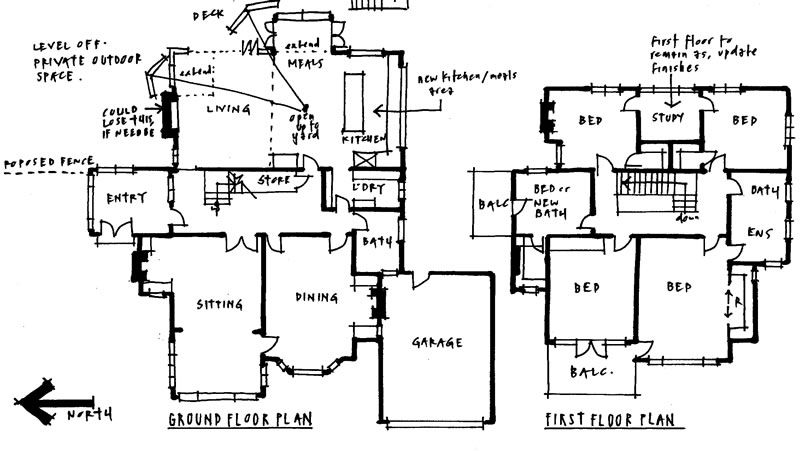You Can Still Buy. Here’s How
It appears that the prices we have been experiencing for the past 18 months are here to stay – at least for the quality properties. For many, prices may seem a touch out of reach.
WHAT ARE THE CHOICES FOR BUYERS?
- Just buy something, without fully considering whether it’s functional for your needs
- Keep waiting for the perfect home
- Borrow more money
- Wait for the market to change
- Recalibrate
Let’s analyse these options:
Just buy something
At least you’re in the market! But what if the home doesn’t work for you, the floorplan isn’t functional, you didn’t consider zoning, or you can’t build/renovate the way you want to? Will the market still be where it is now? Will the market increase another 10% or more – enough to cover the 5.5% stamp duty, advertising costs, agents’ costs, moving costs etc – to warrant starting again? And that’s only the financial cost – there’s the emotional drain too.
Wait for the perfect home
What if ‘the perfect home’ never presents? Worse still, when you finally find the property that ticks every box, it’s highly likely that this ‘perfect property’ will appeal to many others as well. How are you going to maximise your chances of being the buyer? Some properties are selling anywhere from $500k to $1m above reserve prices. How far will your budget stretch?
Wait for the market to change
Many current buyers have never experienced a flat market. It’s good to remember that prices can fall as well as increase. Some people may think this be beneficial for buyers. Perhaps not. Noone likes to lose money, particularly if their home is their largest financial asset, so most homes for sale are likely to be owned by reluctant sellers. Divorce, job loss or health concerns can be some reasons that these buyers are forced to sell. Stock choice may dry up even more.
Borrow more money
What if the interest rates go up? Let’s say by 2%. Potentially that is an increase of 50% on a 4% mortgage – can you meet another 50% on top of existing repayments?
Recalibrate
Many of our clients have had to face the realisation that they can no longer consider properties that they want to buy in the area in which they would like to live.
WHAT SHOULD YOU BE RECALIBRATING? WHAT DOES IT MEAN TO RECALIBRATE?
Essentially, there are four possibilities to consider: price, property, position or a combination of all three.
We’ll consider each of these elements in detail:
Price
It would be great if we could all adjust our purchase price capabilities. However, deep in debt is not a position you want to be in if the market changes.
If you are a buyer with two or three small children, your family costs are yet to reach their peak. As the children become teenagers (even without school fees), the costs of groceries, other extra-curricular activities such as sport and music lessons, clothing, and friend’s birthdays, just to name a few, can be enough to affect even the best budgets.
Property
Perhaps we should just buy whatever is available in the suburb we want to live in.
There’s no benefit in staying in your ideal location however, if the house is falling down around you or the floorplan doesn’t work. If you don’t have the funds to rectify the issues, this can lead to internal stresses.
Imagine three smaller children, now teenagers, trying to harmoniously share the only bathroom in the home! Or the teenagers having to study in the same room that is used for cooking or watching television. Emotional needs of families are very important too.
Position
This includes location. Moving a few more suburbs out may be the answer.
Many agents love ‘out of area’ buyers, so remember, they are acting for the vendors, trying to get their client as much money as possible. Many of these ‘out of area’ buyers have paid record prices in areas they are not familiar with. Properties can appear ‘cheap’ in comparison to where they were originally considering. Bear in mind what might happen if the market drops and you need to move. In a down market, once record prices can quickly become record losses.
On the flip side, an extra two stops on the train will go unnoticed if you know you are going to be coming home each day to a happy family and a home that works.
Smart buyers make good, well-considered decisions. Being prepared is important. Talking to a buyer advocate will help.
There are still many opportunities to buy good homes – particularly in off-market transactions. Some are even selling within 24 hours of becoming available.
You will need to be fully informed of values, comparable sales and do your due diligence on the specific house. If you wait too long, another buyer may snatch the property up.
That being said, you don’t want to rush things without the necessary due diligence or you may wind up paying well above what makes sense to the open market.
There is no right or wrong answer.
Whatever you choose, it’s important that you are comfortable with your decision and the property and location works for you.
Getting it wrong can be a stressful and costly decision.





